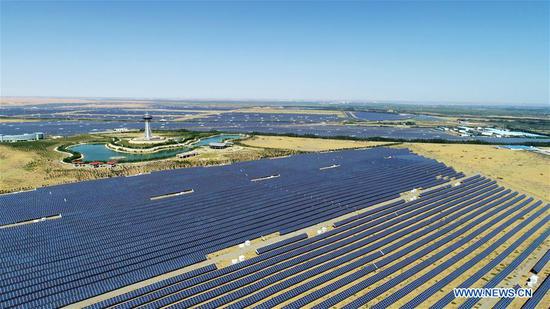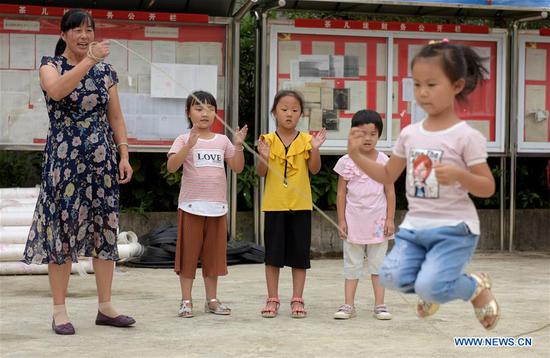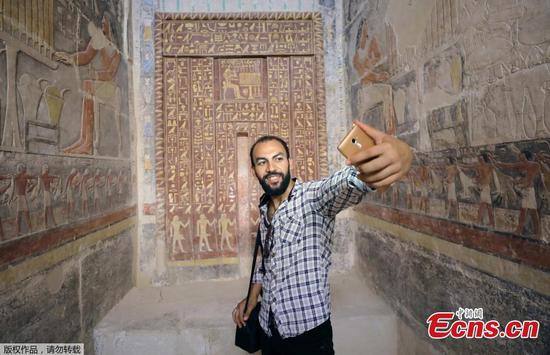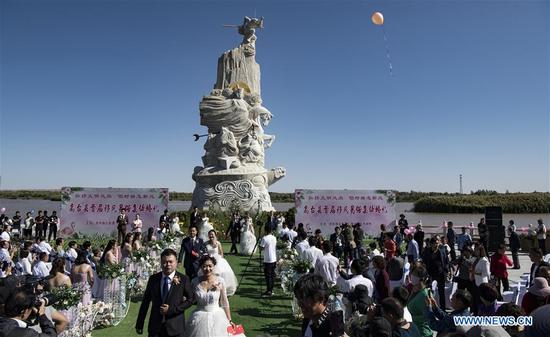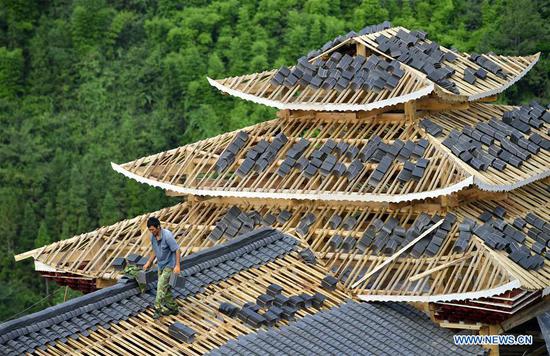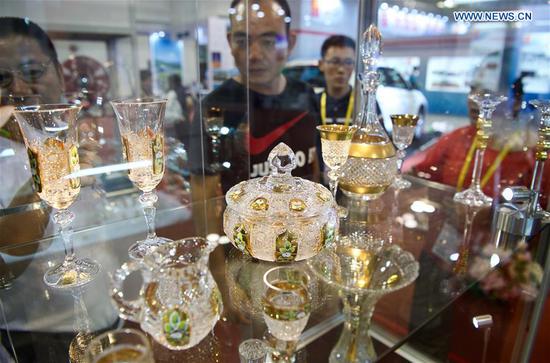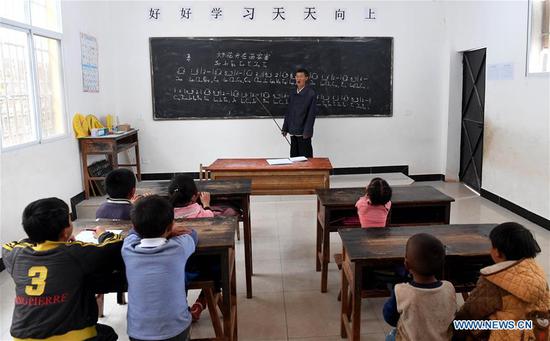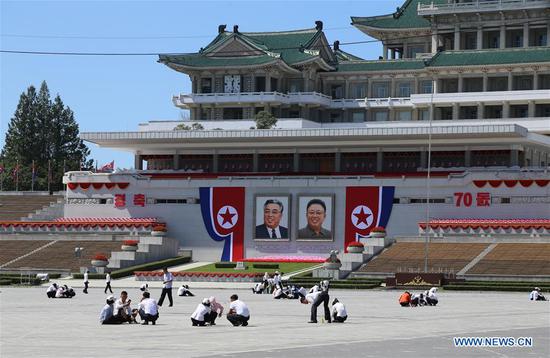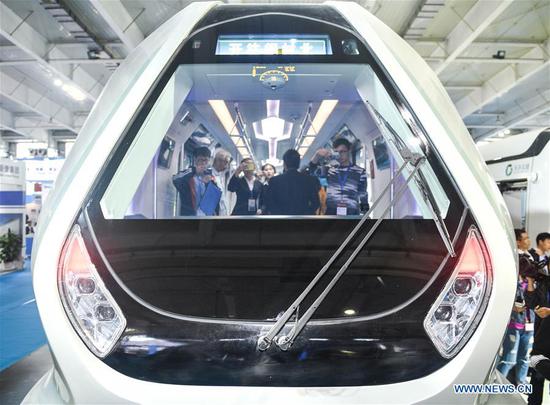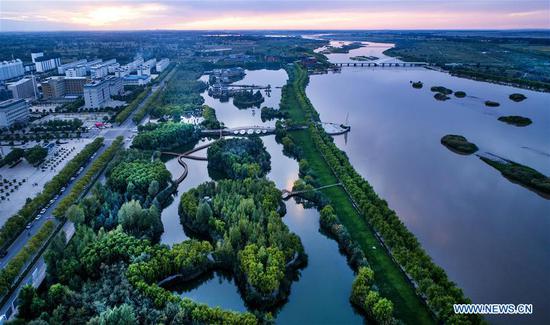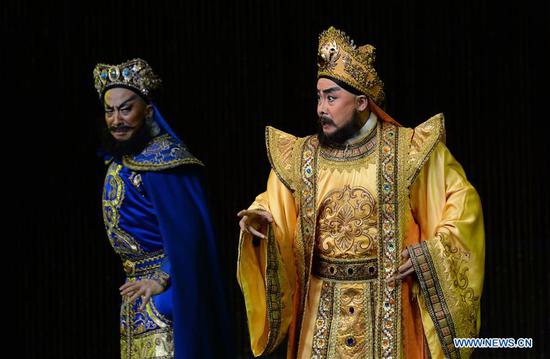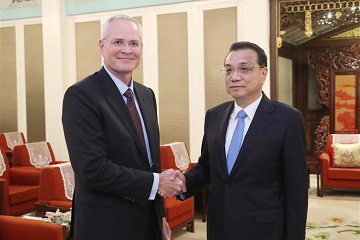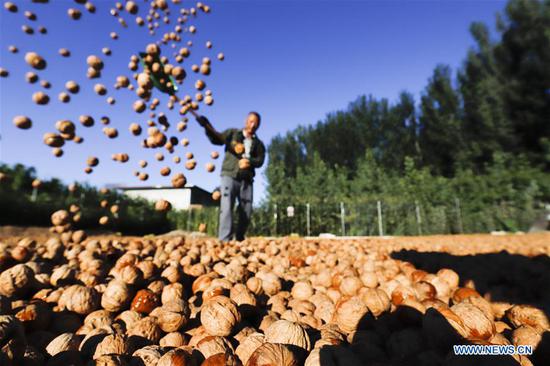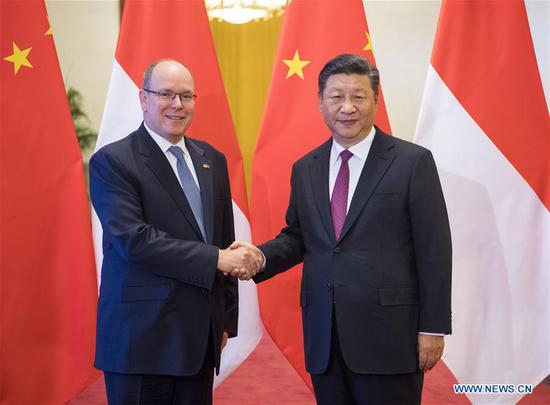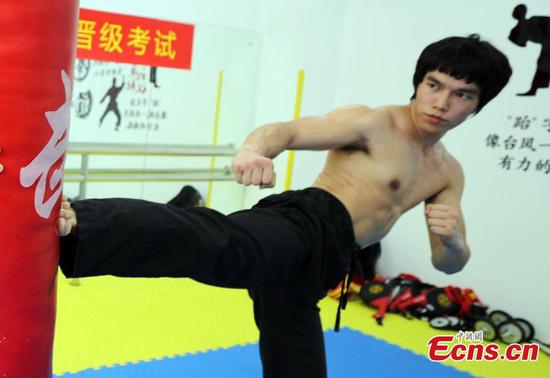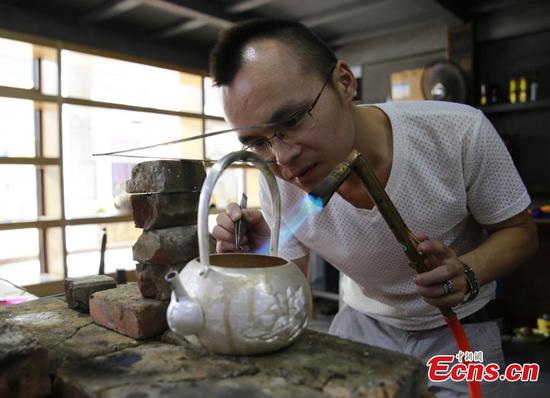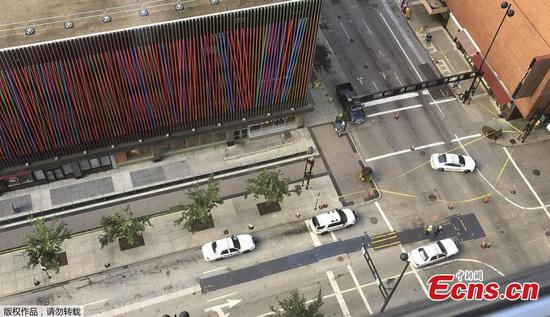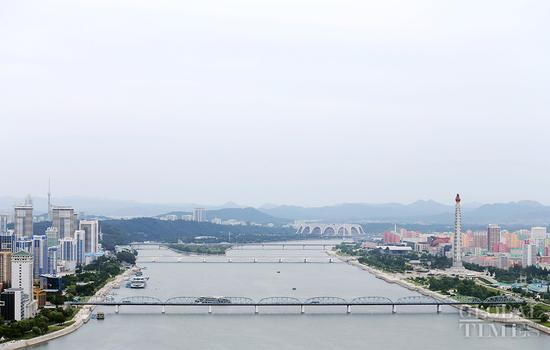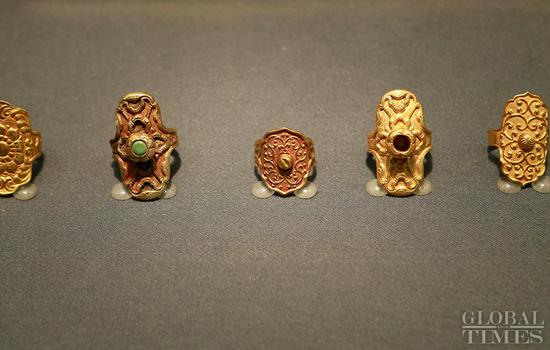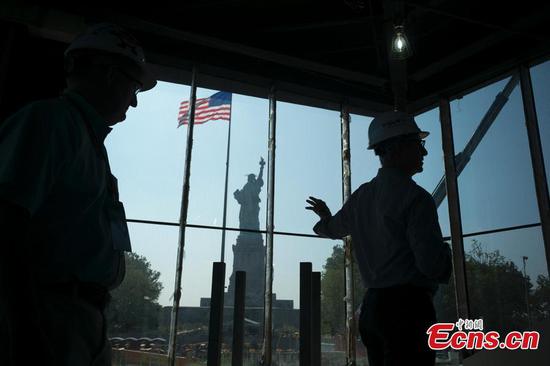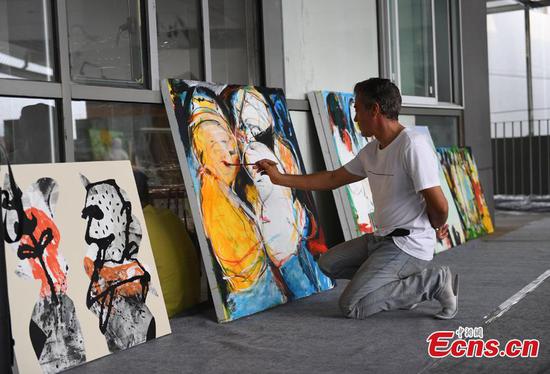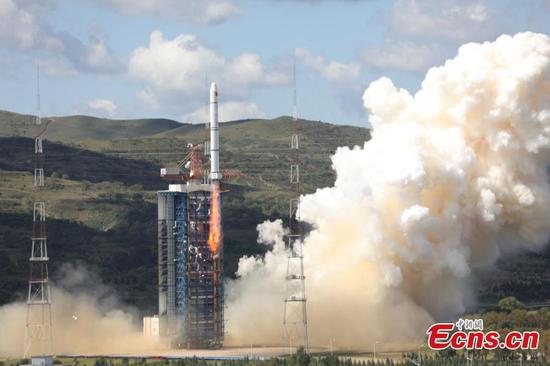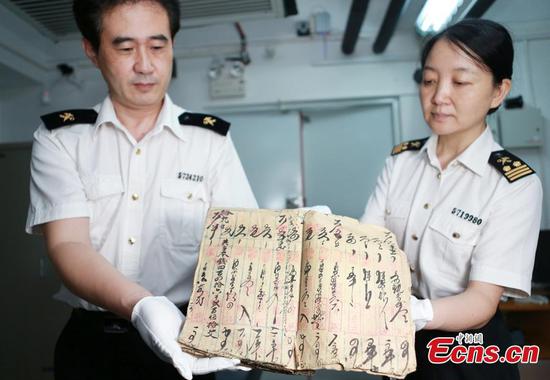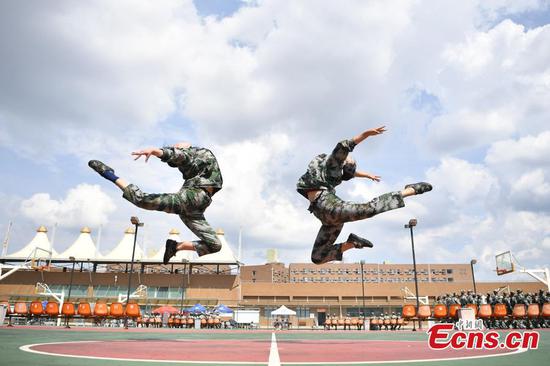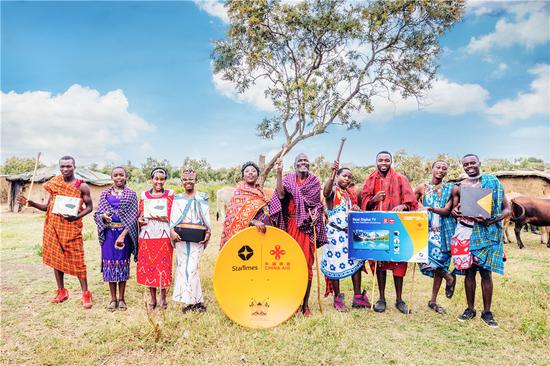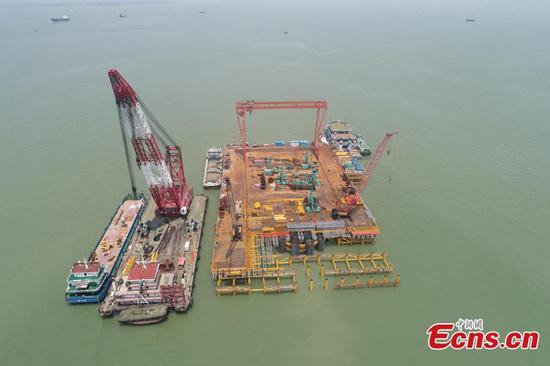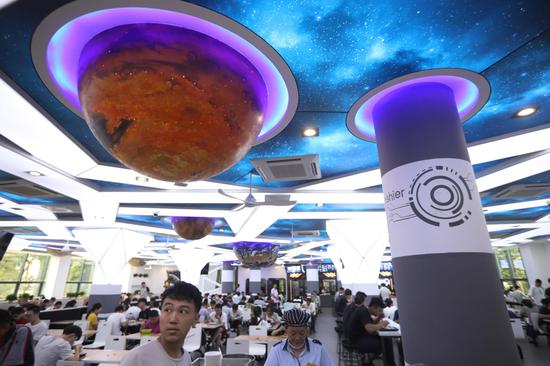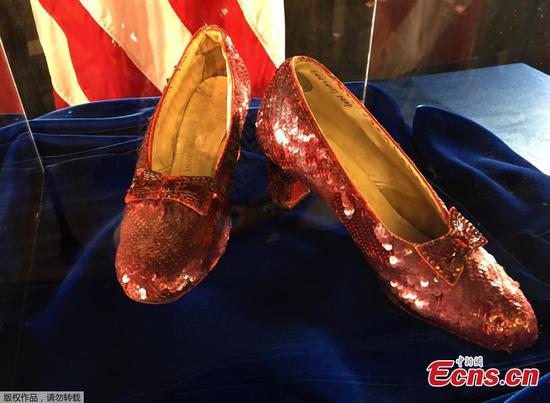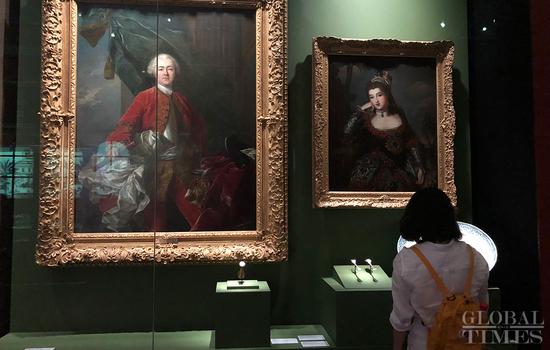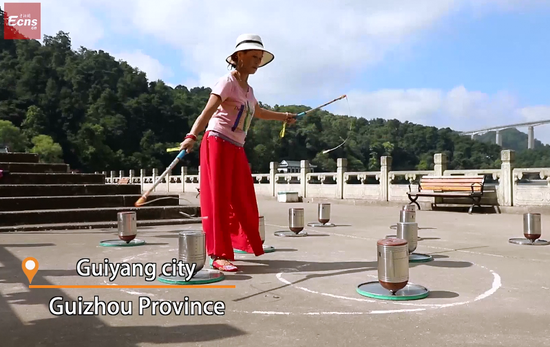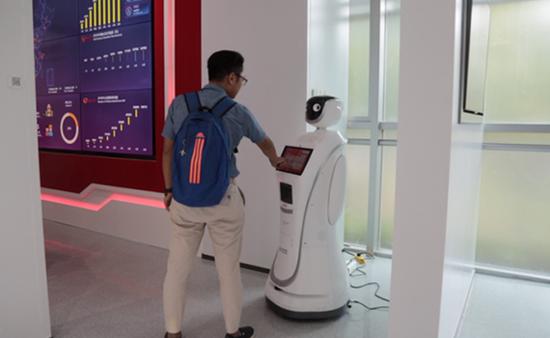
The intelligent robot, displayed in the AstraZeneca Commercial Innovation Center in Wuxi's Xinwu district, will instead of a nurse help guide patients and make appointments. AstraZeneca is one of the world's leading global biopharmaceutical companies. (Photo provided to chinadaily.com.cn)
As the hub of China's internet of things sector, Wuxi, Jiangsu province, has prioritized development to lead the city's emerging strategic industries.
By the end of last year, the city's IoT sector employed more than 180,000 people, according to the local government. The 2,000-plus IoT companies generated combined income of more than 243 billion yuan ($35.5 billion) for the city last year, equal to 50 percent of the income made by IoT companies in the province, and 25 percent of the national total. The annual growth rate of Wuxi's IoT industry has been higher than 20 percent in the five years ending in 2017.
In November 2009, the State Council, China's Cabinet, approved the Wuxi National Sensing Innovation Demonstration Park, which marked the beginning of the city's focus on the development of the IoT industry. Since then, local IoT companies have undertaken projects in more than 60 countries and regions worldwide.
The local government has formulated policies to adjust and optimize the city's IoT sector, according to Li Xiaomin, the Party secretary, who added that key areas of development and direction should be clarified to ensure the sector's sound development.
In February, the local government announced a guideline for the development of the information technology industry. The development will be led by IoT companies, which will receive government support worth as much as 5 million yuan to improve their technology and upgrade equipment. Companies, national research institutions and universities with plans to form research alliances will be eligible for a maximum 2 million yuan in support.
Meanwhile, an IoT industry association was established in the city in July with the help of the local economic and information technology commission.
The association aims to help traditional industries upgrade, and advance integration in various sectors within the IoT sector.
"The central government has attached great importance to the development of IoT, with the technology becoming more widely applied in agriculture, environmental protection, energy, finance, logistics, healthcare, transportation and surveillance," said Gao Yaguang, Wuxi's deputy mayor.
In February last year, the Wuxi government agreed to a strategic partnership with China Electronics Technology HIK Group, a State-owned enterprise, which agreed to bring its planned $1.4 billion IoT project to the city and establish a second national headquarters in Wuxi.
Zhang Wei, general manager of CETHIK Wuxi, said the company is a world leader in security surveillance, and it signed a cooperation contract with the Wuxi police in October last year to establish a connected platform to monitor public security in the city via its video surveillance technology.
"CETHIK will adopt a comprehensive IoT strategy in the near future, which is in line with Wuxi's long-term target. With this cooperation, both of us will be able to give full play to our potential," he said.
IDC, a global market consultancy, has estimated that there will be at least 36 billion IoT terminals across the world by 2021, by which time the global outlay on the sector will reach more than $1 trillion.









